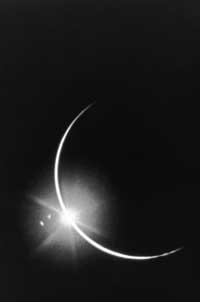Age of the universe

According to a study by ESO, the universe is about 12.5 billion years old. To reach this conclusion, astronomers have analyzed the amounts of uranium and thorium of a star in the constellation of the Whale. The star called CS 31082-001 contains very few metals, so we know it was created at the beginning of the galaxy. The technique used for research is similar to dating with CO2. The average life of uranium is relatively short, about 4.5 billion years, while that of Orio is longer, about 14 billion years.
Measuring the relative amounts of uranium and thorium in the atmosphere of a star allows predicting the amounts it had at the time of its formation. Then, taking into account various concepts of nuclear physics, a precise ‘chronometer’ can be obtained to measure the time elapsed since the creation of these elements. The tolerance of the result of astronomers who have carried out the research is about +/- 2,000 million years. However, they expect to obtain more accurate results by analyzing the atmospheres of more stars.





